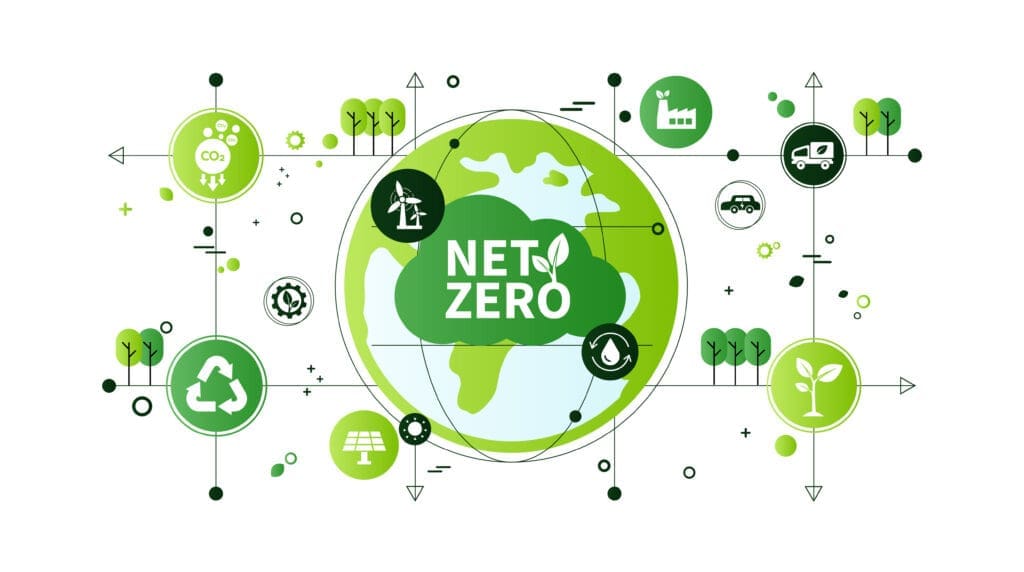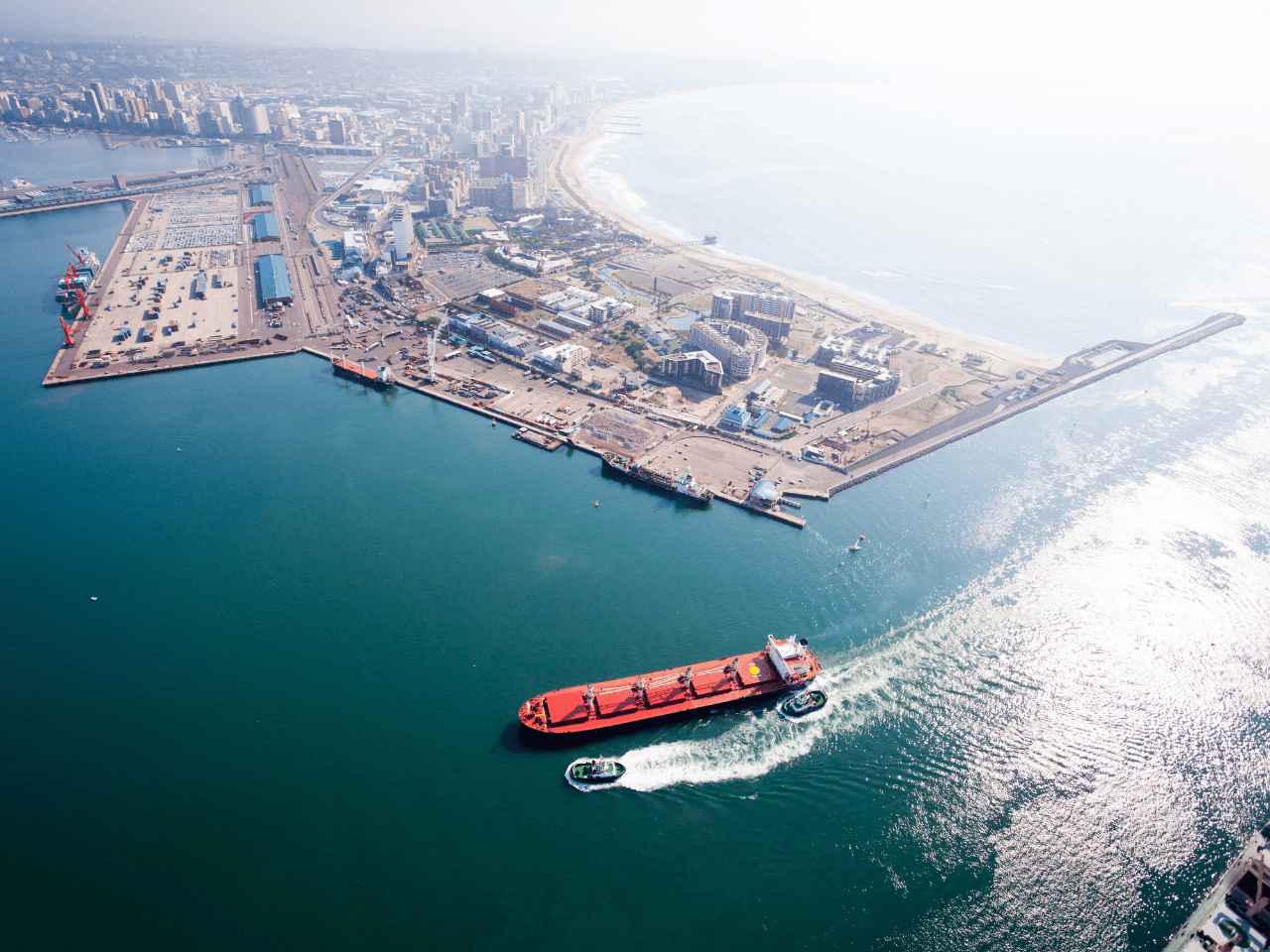The forefront of sustainability: leading the way
Anglian Water, the largest water and recycling company in England and Wales by geographic area, has been at the forefront of sustainability, demonstrating a strong commitment to reducing its carbon footprint across its operations and supply chain.
By participating in the Toitū Carbon Reduce Programme, Anglian Water has enhanced its carbon management practices and driven sustainability efforts by engaging with suppliers to adopt low-carbon solutions.

Challenge: A growing population and climate change
As the world’s population grows and the climate changes, Anglian Water faces increased challenges in its business. Taking a proactive approach in 2010, it went against industry norms and set itself a goal of halving carbon emissions in assets it built by 2015.
‘We looked at emissions from extracting raw materials, transportation, fabrication and construction of infrastructure assets we build, as well as the operational carbon to run it all – to get a holistic view of our impact,’ explained David Riley, Head of Carbon Neutrality at Anglian Water.
As the threat of climate change continues to intensify, regulatory bodies and global investors are pushing organisations to make significant carbon reductions. Anglian Water is no different and has set a target to achieve Net Zero by 2030. To meet this goal, it must reduce emissions across its supply chain while providing transparent reporting that aligns with stakeholder expectations.
Using the Carbon Reduce Programme to Drive Supply Chain Transformation:
The Toitū Carbon Reduce Programme has been instrumental in facilitating Anglian Water’s carbon reduction journey. The programme has given Anglian Water a platform to systematically measure, manage, and reduce its greenhouse gas emissions across its supply chain. The company’s Net Zero Roadmap focuses on three key steps: reducing energy consumption, transitioning to renewable energy, and offsetting residual emissions.

The Programme’s focus on collaboration has enabled Anglian Water to engage with key suppliers across its infrastructure projects, encouraging them to measure their own emissions and align with the company’s sustainability goals. This collaboration has created a ripple effect, where emissions reductions occur across the entire supply chain. This supports in decarbonising the supply chain and tackling scope 3 emissions.
David commented, ‘It is absolutely vital to get the supply chain involved. As a standalone organisation you can achieve so much but it’s only when you fully engage the supply chain you start to achieve much more significant reductions. Not only that, but we want to work with leading suppliers who are looking at their own emissions.’
Capital Carbon Reductions and Low-Carbon Infrastructure
A key success from the programme is Anglian Water’s 63% reduction in capital carbon since 2010. By embedding carbon considerations into the design and delivery of major projects like the Strategic Pipeline Alliance, the company has reduced the embodied carbon associated with construction materials and processes. For example, Anglian Water has set ambitious targets for sourcing green steel and lower-carbon concrete for critical infrastructure projects to further reduce supply chain emissions.
Carbon Reduction Milestones: A Decade of Success
Anglian Water is one of just 29 companies to achieve Carbon Reduce accreditation for 13 consecutive years, demonstrating a long-term commitment to sustainability. By submitting carbon data dating back to 2007-2008, the company has tracked its progress and refined its carbon reduction strategies over time. This consistent reporting has allowed Anglian Water to reduce both capital carbon and operational carbon, which has seen a 6% reduction from 2018 levels.
Leading by Example: ISO Standards and CDP Leadership
Anglian Water’s participation in the Toitū Carbon Reduce Programme is further reinforced by its ISO certification, which provides a marketable advantage. The company’s leadership in sustainability is also highlighted by its inclusion in the A- Leadership Category (top 5.5%) of the Carbon Disclosure Project (CDP) score. This recognition underscores Anglian Water’s commitment to environmental transparency and performance, bolstering its reputation as a sustainability leader.
Green Financing and Future Commitments
Another significant driver of Anglian Water’s carbon reduction efforts has been its ability to raise over £1.6 billion in green finance since 2020. This capital has been funnelled into sustainability projects that align with its carbon reduction goals, further strengthening its ability to deliver on its net-zero by 2030 commitment. By leveraging green finance, Anglian Water has been able to scale its low-carbon projects and improve the sustainability of its supply chain.
Beyond Carbon: Environmental and Social Benefits
Beyond reducing carbon emissions, Anglian Water’s sustainability efforts have broader environmental benefits. The company’s Get River Positive initiative, for instance, has reduced storm overflows and improved river health. This reflects Anglian Water’s commitment to enhancing the natural environment while cutting emissions. It demonstrates that the company’s carbon reduction strategy is intrinsically linked to its broader environmental responsibilities, including improving water quality and fostering biodiversity.
A Model for the Future
Anglian Water’s experience with the Toitū Carbon Reduce Programme has demonstrated the value of embedding carbon management throughout its supply chain. It highlights the importance of collaboration, accountability, and transparency in achieving long-term sustainability goals.
It is really valuable to have expertise from the Achilles team on tap. I know that when we get in touch and ask a question – be it on renewable energy, certification, green energy, biogas or something else – that they will either go away and find the answer or find someone within the team who will be able to give an answer’, explains David.
As Anglian Water continues its journey toward net-zero carbon by 2030, its commitment to embedding carbon management across its supply chain sets a powerful example for other utility companies.



